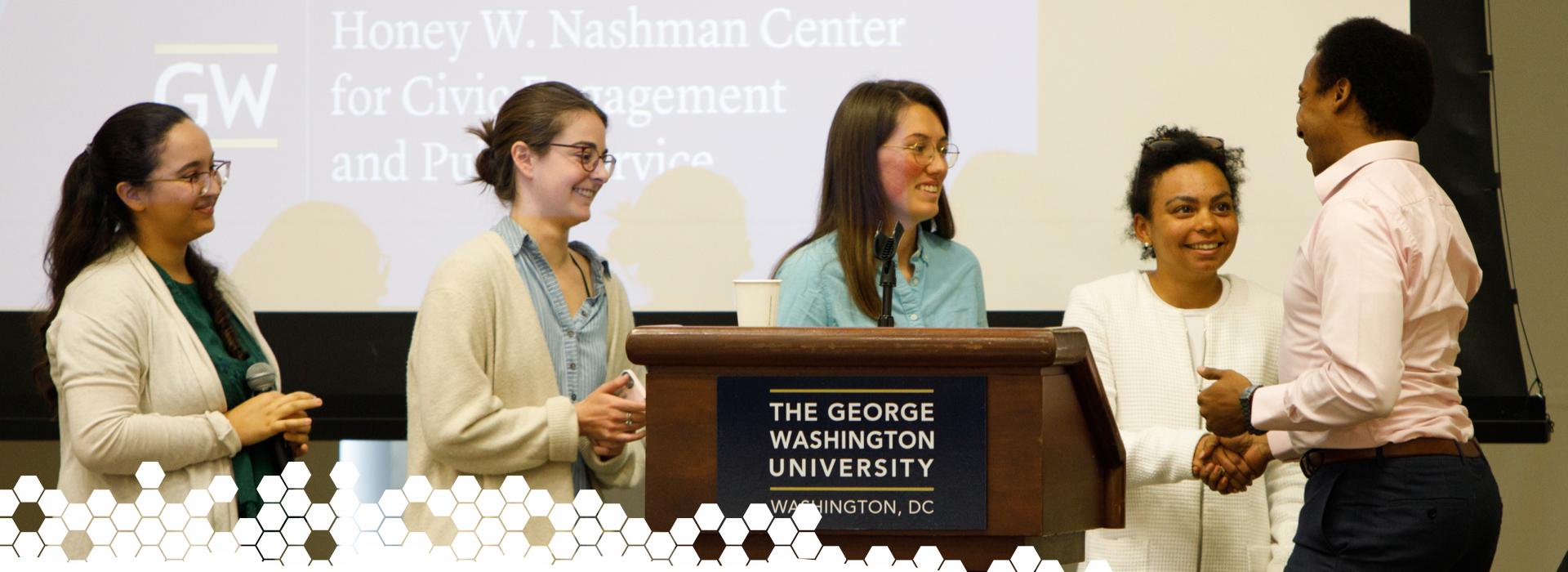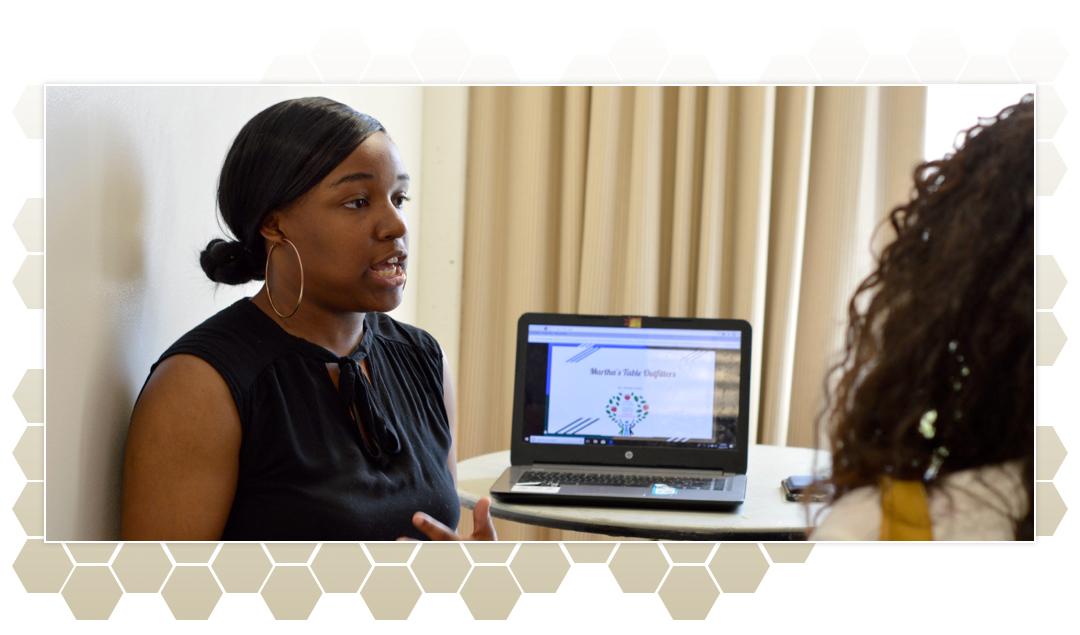Community Engaged Scholarship
The Nashman Center provides support and advocacy to promote Community Engaged Scholarship. GW has a proud tradition of mutually beneficial partnerships between scholars and community members, through service-learning courses, participatory action research, professional practice and creative work.
What is Community Engaged Scholarship?
The most commonly used definition and the one used by the Nashman Center is:
Community engagement describes collaboration between institutions of higher education and their larger communities (local, regional/state, national, global) for the mutually beneficial exchange of knowledge and resources in a context of partnership and reciprocity. The purpose of community engagement is the partnership of college and university knowledge and resources with those of the public and private sectors to enrich scholarship, research, and creative activity; enhance curriculum, teaching, and learning; prepare educated, engaged citizens; strengthen democratic values and civic responsibility; address critical societal issues; and contribute to the public good. -- Carnegie Classification of Institutions of Higher Education
While some frame community engaged scholarship as a new paradigm for teaching and research, the connection of scholarship and learning for the public benefit has always been a feature of American higher education. John Dewey wrote more concretely about this connection in 1916, reaffirming that learning should be connected to real community experience, and that knowledge should be applied to solve social problems.
George Washington University values many forms of scholarship and recognizes that community engaged work is not a fit for everyone. But for the many scholars at GW called to it, meaningfully incorporating community perspectives and guidance into the academy enhances the quality of the work and gives us a greater sense of purpose and connection. Community engagement creates more complexity and relevance in teaching, drives better research questions and generates results with real impact.
Further resources are available here. Please reach out to the Nashman Center (gwserves gwu [dot] edu (gwserves[at]gwu[dot]edu)) if you are one of the many faculty at GW with an interest in community engagement.
gwu [dot] edu (gwserves[at]gwu[dot]edu)) if you are one of the many faculty at GW with an interest in community engagement.
Key Aspects of our Definition of CES
- Community. GW focuses on community partners that are external to the academy. Communities are people sharing some commonality, such as geography, social identity, affiliation, or circumstance. Frequently, GW’s community partners are nonprofits, schools, government agencies, or for-profit businesses with a pro-social mission.
- Engagement. Distinct from community service, outreach, or application of knowledge, engagement requires reciprocity and collaboration. We value what the community contributes to the project, particularly with respect to knowledge, perspective, and ideas. Academic and community partners share decision-making power, co-create plans, and make meaning of findings together.
- Scholarship. Intellectual and creative work to advance knowledge, including research/creative activity, teaching, integration, and engagement (Boyer, 1990).
Examples include:
- Community Engaged Scholarship in Research/Creative Activity: Community Based Participatory Research (CBPR), Participatory Action Research (PAR), Citizen Science, Art as Social Practice, teacher-researcher collaborations, or working with affected stakeholders on needs assessments and policy impact studies.
- Community Engaged Scholarship in Teaching: Service-Learning courses in any discipline, community-based research courses, student public scholarship projects, clinical experiences, internships with community serving organizations, or problem-based learning involving community partners.
- Community Engaged Scholarship in Service: Drawing on one’s scholarly expertise to provide consulting, training, testimony, clinical practice, serve on advisory boards, etc.
Standards of Practice
The following standards of practice were established by a Nashman Center faculty advisory committee in 2017 and are grounded in the Campus Compact Principles of Good Practice (Heffernan, 2001).
- Initiatives address a real, community-identified need
- Initiatives are scholarly activity, mutually benefiting scholars and the community
- The campus-community partnership is a reciprocal relationship, with shared decision-making
- Students and faculty are prepared for responsible engagement with the community
- Students and faculty engage in on-going reflection and meaning making
- Scholarship is disseminated for public benefit
Connect
Definition
Community Engagement describes the collaboration between institutions of higher education and their larger communities (local, regional/state, national and global) for the mutually beneficial exchange of knowledge and resources in a context of partnership and reciprocity.
The purpose of community engagement is the partnership of college and university knowledge and resources with those of the public and private sectors to enrich scholarship, research and creative activity; enhance curriculum, teaching and learning; prepare educated, engaged citizens; strengthen democratic values and civic responsibility; address critical societal issues; and contribute to the public good.
– Carnegie Foundation for the Advancement of Teaching –
Standards of Practice
As engaged scholars, we believe that community engagement in higher education is not an "add-on" but a fundamental part of the knowledge enterprise. It is both the purpose of scholarship and the path to scholarship. In all initiatives, we are collectively committed to the following standards of practice, established by a Nashman Center faculty advisory committee in 2017 and grounded in the Campus Compact Principles of Good Practice. (Heffernan, 2001)
- Initiatives address a real, community-identified need
- Initiatives are scholarly activity
- The campus-community partnership is a reciprocal relationship
- Students and faculty are prepared for responsible engagement
- Students and faculty engage in on-going reflection and meaning-making
- Scholarship is disseminated for public benefit







